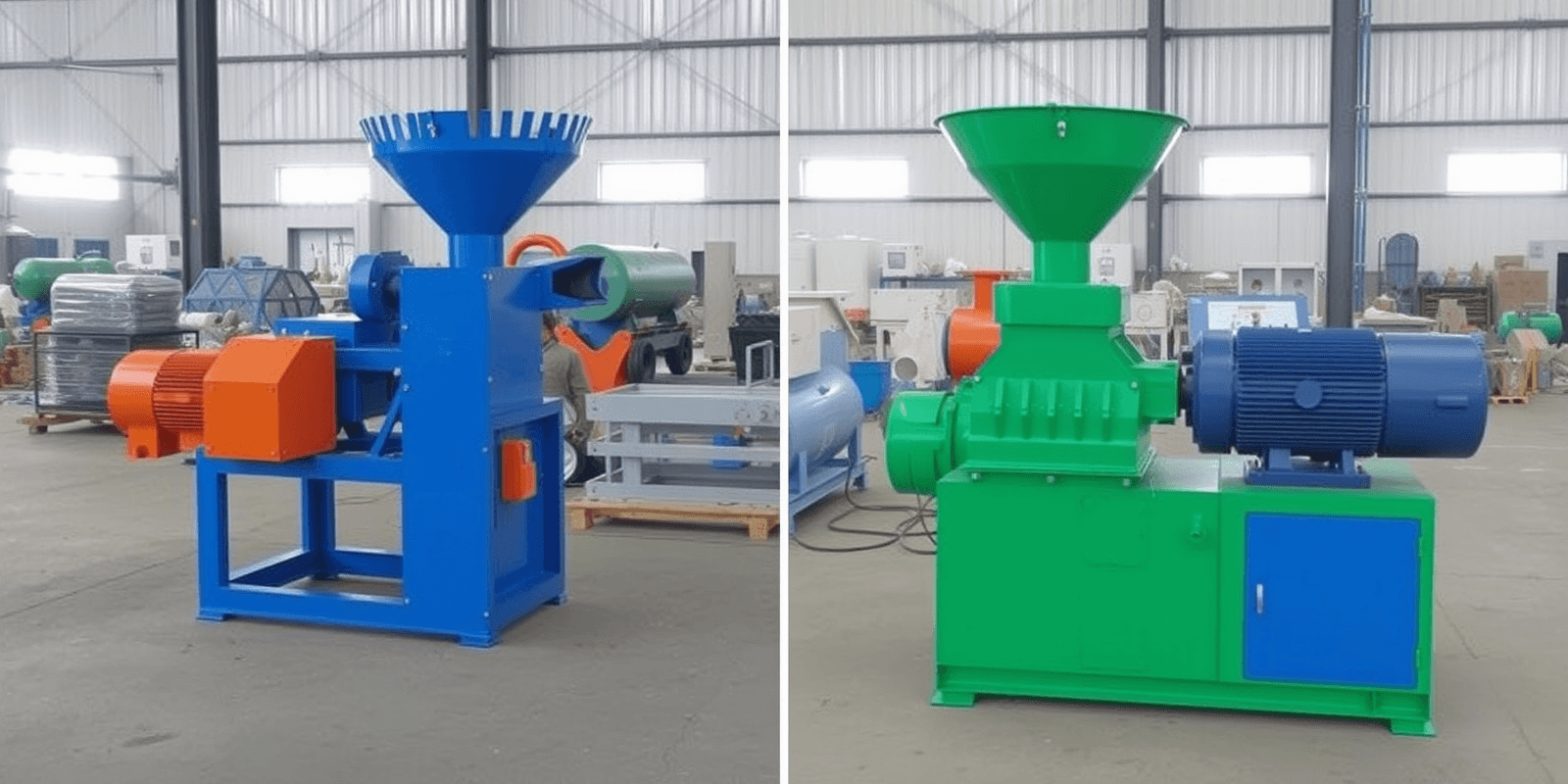Physical Address
304 North Cardinal St.
Dorchester Center, MA 02124
Physical Address
304 North Cardinal St.
Dorchester Center, MA 02124

Plastic granulators are essential machines in the recycling industry, used to process and prepare plastic waste for reuse. The evolution of these machines has been driven by the need for more efficient and environmentally friendly methods of recycling. Traditional plastic granulators were basic in design and function, focusing primarily on breaking down large plastic pieces into smaller, manageable fragments. However, modern plastic granulators for recycling waste plastic have significantly advanced, incorporating sophisticated technologies that enhance both efficiency and environmental sustainability.
Traditional plastic granulators relied heavily on mechanical force to break down plastic materials. These machines typically featured simple cutting blades and a rotating drum to grind plastic waste. In contrast, modern plastic granulators utilize advanced technologies such as computerized controls, high-speed cutters, and precise feeding systems. For instance, contemporary designs often incorporate variable frequency drives (VFDs) to optimize motor speed, thereby reducing energy consumption and wear on components. Additionally, modern granulators may feature multiple cutting stages or a combination of shredding and granulating functions in a single machine, enhancing their versatility and throughput capacity.
Modern plastic granulators outperform their predecessors in several key areas. Firstly, they offer higher processing speeds, which means that more plastic can be recycled within a shorter timeframe. Secondly, they produce finer granules, which are easier to handle and more suitable for various manufacturing processes. This is particularly important because finer granules allow for better mixing and blending with other materials, leading to higher-quality end products. Lastly, modern granulators are designed with user-friendly interfaces, making them easier to operate and maintain. This not only reduces downtime but also lowers the skill level required to manage the machinery effectively.
The environmental benefits of modern plastic granulators are significant. They contribute to reducing the amount of plastic waste that ends up in landfills or oceans, thereby mitigating pollution and conserving natural resources. Moreover, advancements in material handling and dust control systems minimize emissions during the recycling process, improving air quality around recycling facilities. Additionally, the increased efficiency of modern granulators means less energy is consumed per unit of plastic processed, leading to lower carbon footprints. This is crucial given the global push towards sustainable practices and the reduction of greenhouse gas emissions.
The introduction of modern plastic granulators has had a profound impact on the recycling industry. It has led to the creation of more jobs in the sector due to the increased demand for skilled operators and maintenance personnel. Furthermore, the improved quality and consistency of recycled plastic have opened up new markets for recycled materials, encouraging innovation and investment in recycling technologies. This shift has also fostered collaboration between manufacturers, recyclers, and policymakers, driving the development of standards and regulations that support sustainable practices.
The transition from traditional to modern plastic granulators represents a significant advancement in the field of plastic recycling. While traditional granulators laid the foundation for this industry, modern versions have revolutionized it through technological innovations that enhance efficiency, performance, and environmental sustainability. As the world continues to grapple with the challenges of plastic waste, the role of these machines will undoubtedly become even more critical in shaping a more sustainable future.
Advancements in Plastic Granulation Technology: A Review, ScienceDirect